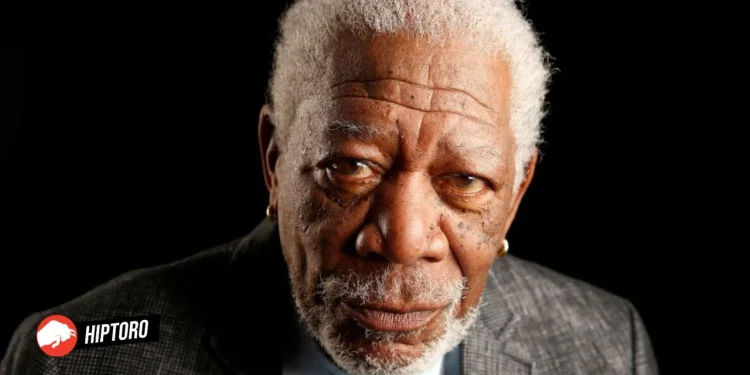Morgan Freeman, an iconic figure in the world of cinema, is renowned for his deep, commanding voice and a remarkable ability to bring depth and gravitas to his roles. With a career spanning several decades, Freeman has become one of the most respected and beloved actors of his generation, known for his versatility and the dignified presence he brings to every character he portrays.
From playing authoritative figures and wise mentors to everyday heroes, Freeman’s performances are marked by a profound humanity and a subtle yet powerful emotional resonance. His distinguished career is adorned with numerous accolades, including an Academy Award, showcasing his enduring impact on the film industry and his unparalleled talent in capturing the complexity of the human spirit.
Morgan Freeman’s journey in Hollywood is a testament to his enduring talent and versatility. Born on June 1, 1937, in Memphis, Tennessee, Freeman’s interest in acting was sparked at an early age, leading him to pursue his passion through theater and eventually transitioning to film and television.
His breakout role came in the 1980s with the film “Street Smart,” where his performance earned him widespread acclaim and his first Academy Award nomination. However, it was his roles in films like “Driving Miss Daisy,” “The Shawshank Redemption,” and “Million Dollar Baby” that solidified his status as a Hollywood legend, showcasing his ability to convey complex emotions and moral authority with subtlety and depth.
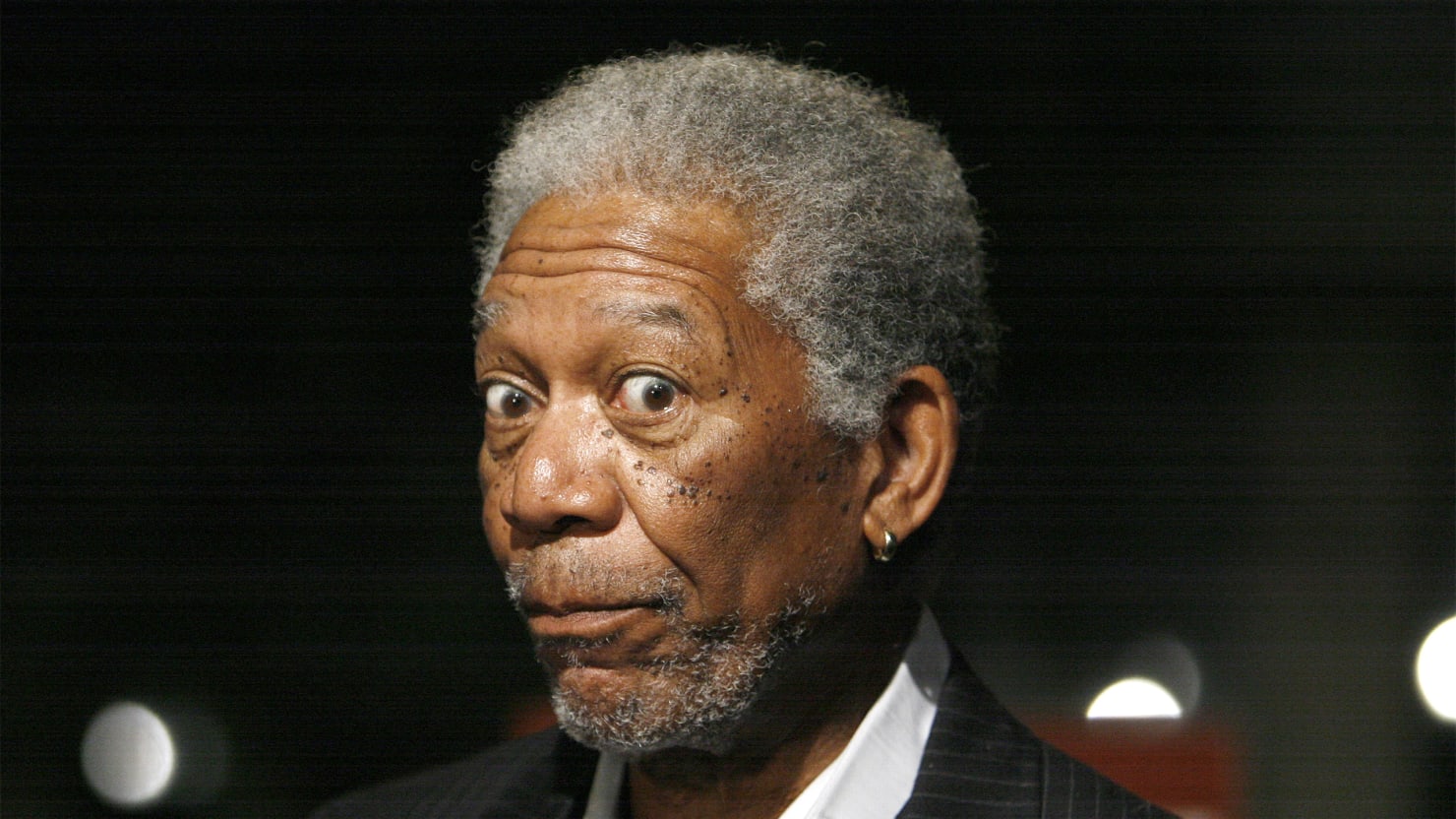
Freeman’s influence extends beyond his on-screen roles; he is also known for his distinctive voice, which has made him a sought-after narrator for documentaries and various film projects. His narration in the film “March of the Penguins” and his role as the host of the National Geographic series “The Story of God” highlight his ability to engage audiences with his compelling storytelling.
Beyond his cinematic achievements, Morgan Freeman is deeply committed to social and environmental causes. He has used his platform to advocate for racial equality, disaster relief, and wildlife conservation, among other issues. Freeman’s dedication to making a positive impact off-screen further amplifies the respect and admiration he commands, not just as an actor but as a humanitarian.
In the landscape of Hollywood, Freeman’s career is remarkable for its longevity and the high quality of work he consistently delivers. He has become a symbol of integrity and excellence in the film industry, with a legacy that inspires both contemporaries and aspiring actors. His choice of roles reflects a nuanced understanding of the human condition, allowing audiences to see themselves in his portrayals of dignity, strength, and vulnerability.
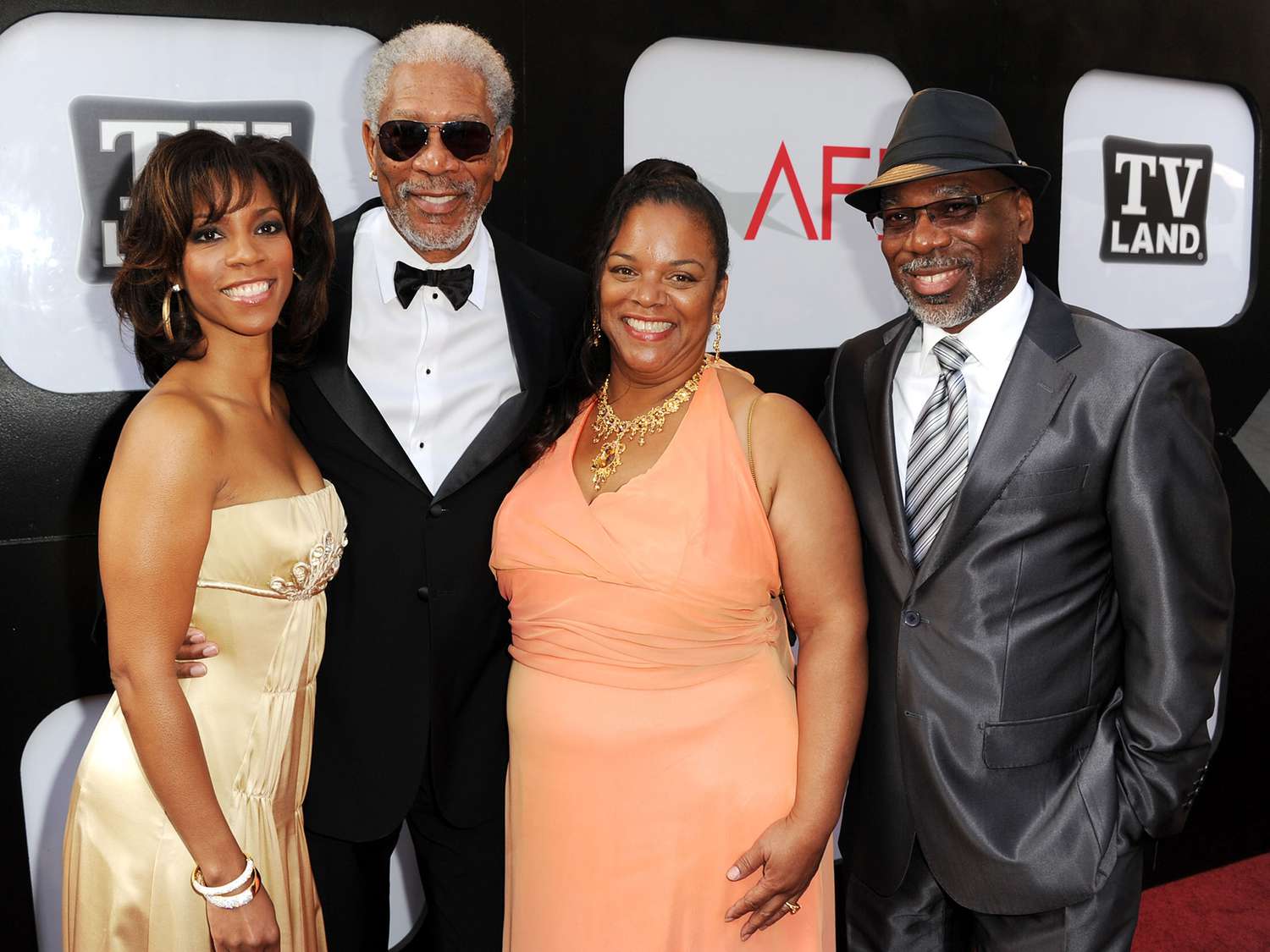
Morgan Freeman, with his distinctive voice and commanding presence, has been a formidable figure in the film industry for decades. His career spans across a variety of genres, showcasing his versatility as an actor. Freeman has the unique ability to elevate every movie he’s part of, whether through leading roles or powerful supporting performances.
Given the constraints, here’s a speculative list of the top 10 movies featuring Morgan Freeman based on their impact, his performance, and their overall reception:
Top 10 Best Movies of Morgan Freeman
1. “The Shawshank Redemption”: A Timeless Tale of Hope and Humanity
Released in 1994 and directed by Frank Darabont, “The Shawshank Redemption” stands as a monumental achievement in film, offering a profound narrative on the resilience of the human spirit against the backdrop of despair.
Based on Stephen King’s novella “Rita Hayworth and Shawshank Redemption,” the film narrates the story of Andy Dufresne (Tim Robbins), a banker who is wrongfully convicted of the murder of his wife and her lover, resulting in a life sentence at Shawshank State Penitentiary. Here, he meets Ellis “Red” Redding (Morgan Freeman), a lifer who becomes his closest ally.
The brilliance of “The Shawshank Redemption” lies not just in its storytelling but in its character development, especially that of Red, portrayed with nuance and depth by Morgan Freeman. Red, the prison fixer who can get anything for anyone, is the story’s narrator, guiding the audience through the harrowing yet hopeful journey within the prison walls. Freeman’s performance is a masterclass in understatement, imbuing Red with a sense of wisdom, dignity, and resilience that becomes the film’s moral compass.
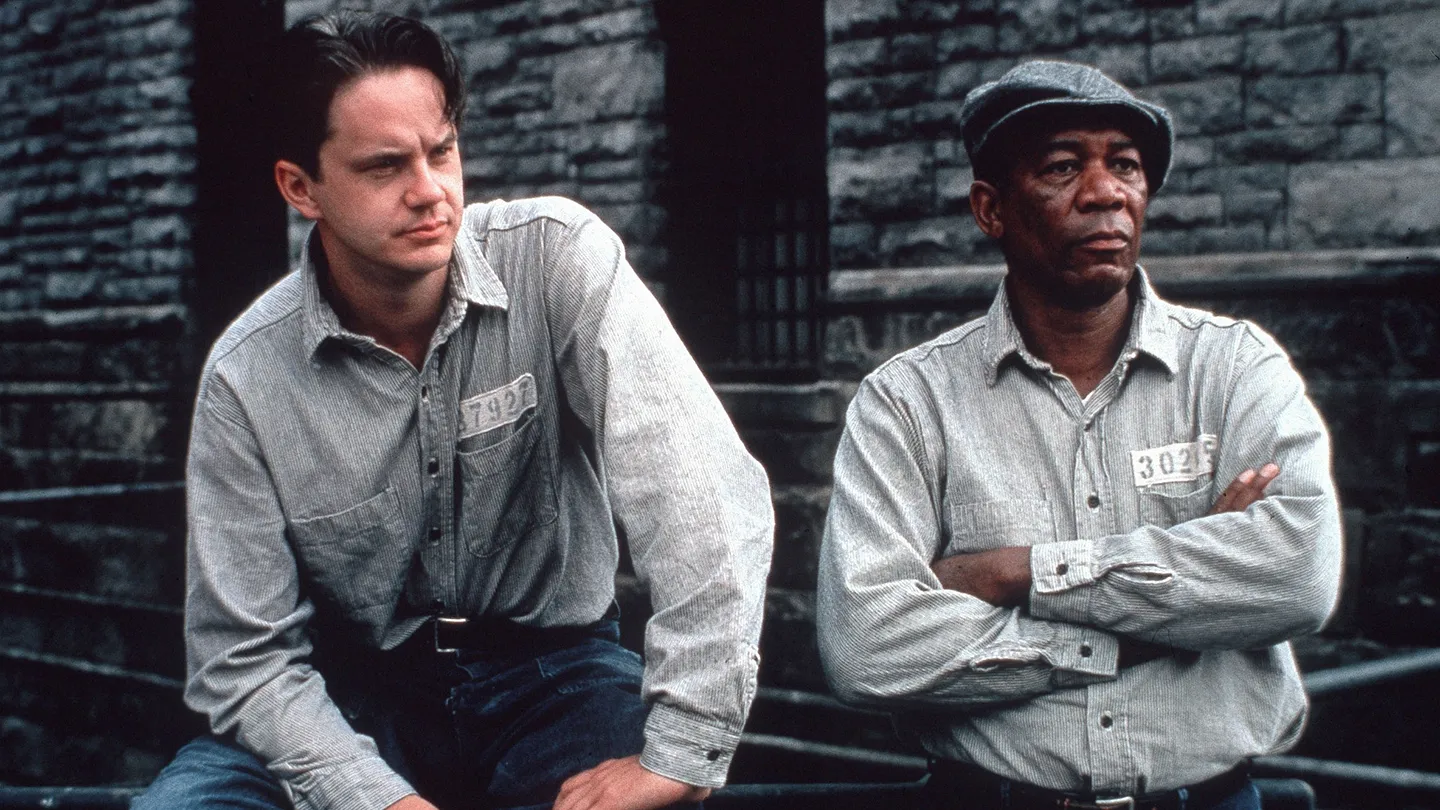
The movie’s central themes revolve around hope, friendship, and redemption, with the bond between Andy and Red serving as the emotional core. Despite the grim setting of Shawshank prison, the film radiates a hopeful message, largely conveyed through the experiences and evolution of its characters.
Freeman’s Red experiences a profound transformation throughout the film, from a man resigned to his fate within the prison walls to one who rediscovers his sense of hope and the possibility of a life beyond bars, inspired by Andy’s indomitable spirit.
“The Shawshank Redemption” was not an immediate box-office success but has since gained a passionate following, becoming a beloved classic. Its slow-building acclaim is a testament to its quality, depth, and the universal appeal of its message. The film’s enduring popularity is reflected in its top ranking on IMDb’s list of the greatest movies of all time, a position it has held for many years, highlighting its impact on audiences worldwide.
Morgan Freeman’s portrayal of Red has become iconic, earning him an Academy Award nomination for Best Actor. His performance, characterized by its warmth, humanity, and the gravitas he brings to the role, is a pivotal element of the film’s success. Freeman delivers memorable lines with a profound sense of authenticity and empathy, making Red’s journey from cynicism to hope one of the most compelling aspects of the narrative.

In conclusion, “The Shawshank Redemption” is more than just a movie; it’s a poignant exploration of the human condition, a celebration of friendship, and a beacon of hope in the darkest of times. Morgan Freeman’s role as Red is central to this, providing a voice to the film’s enduring message: that hope is a powerful force capable of transcending even the bleakest circumstances.
2. “Unforgiven” (1992) – Revisiting Clint Eastwood’s Masterpiece
In the pantheon of Western films, Clint Eastwood’s “Unforgiven” occupies a revered spot, distinguished not only by its storytelling but also by its introspective examination of the Western genre itself. Released in 1992, this film marked a significant point in Eastwood’s career, not just as an iconic actor but as a director with a nuanced understanding of the Western ethos and its implications.
Starring Eastwood himself, alongside Morgan Freeman, Gene Hackman, and Richard Harris, “Unforgiven” is a dark, gritty tale that explores themes of redemption, morality, and the inescapable shadows of one’s past.
The Plot: A Journey into Darkness
“Unforgiven” tells the story of William Munny (Eastwood), a notorious outlaw and killer who has put his violent past behind him to embrace a peaceful life as a widower and father. However, the film begins with Munny reluctantly deciding to return to his old ways for one last job, prompted by the prospect of a reward for avenging a disfigured prostitute. Joined by his old friend Ned Logan (Freeman) and a young gunslinger, The Schofield Kid (Jaimz Woolvett), Munny embarks on a journey that forces him to confront not only his legacy of violence but the brutal realities of frontier justice.
A Revisionist Western
What sets “Unforgiven” apart from traditional Westerns is its refusal to romanticize the life of the gunslinger. Instead, Eastwood presents a stark, unglamorous portrayal of the Old West, where violence is brutal and its consequences haunting. The film challenges the myth of the hero gunslinger, portraying its characters as flawed humans, burdened by their actions rather than glorified by them. In doing so, “Unforgiven” acts as a commentary on the genre itself, deconstructing the myths that have long been associated with the American frontier.
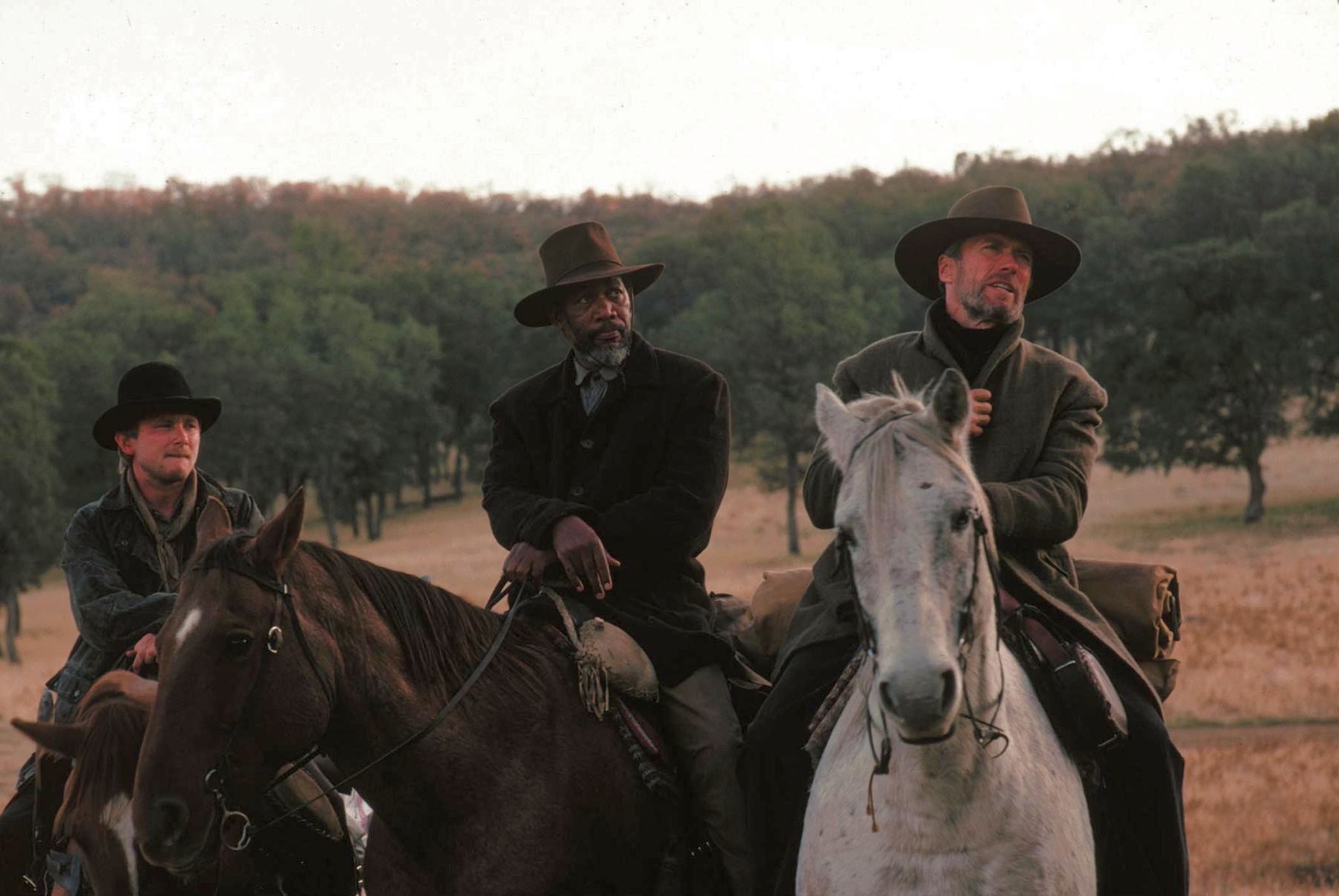
Gene Hackman’s performance as Little Bill Daggett, the sadistic sheriff of Big Whiskey, Wyoming, further complicates the narrative. Little Bill represents the law, but his cruelty and sense of justice bring into question the moral ambiguity of right and wrong in the West. His character serves as a powerful foil to Eastwood’s Munny, highlighting the film’s exploration of redemption and the possibility of change.
Legacy and Impact
“Unforgiven” received widespread critical acclaim upon its release, earning nine Academy Award nominations and winning four, including Best Picture and Best Director for Eastwood. The film’s success solidified Eastwood’s reputation as a master filmmaker and offered a new perspective on the Western genre. By examining the violence and moral complexities of the Old West, “Unforgiven” contributed to the evolution of the genre, paving the way for future films to explore similar themes.

In conclusion, “Unforgiven” is not just a film but a landmark in cinematic history, offering a profound critique of the Western genre and the myths of the American frontier. Through its complex characters, moral ambiguity, and unflinching portrayal of violence, the film invites us to reflect on the legacies we leave behind and the possibility of redemption. As such, “Unforgiven” stands as a masterful exploration of the human condition, set against the backdrop of the fading Old West, and remains a pivotal work in Clint Eastwood’s illustrious career.
3. “Se7en”: A Dark Journey Through the Human Psyche
“Se7en,” directed by David Fincher and released in 1995, stands as a landmark in the psychological thriller genre. The film delves into the grim realities of sin and the human condition, masterfully intertwining suspense, horror, and drama into a narrative that leaves viewers pondering long after its conclusion. Morgan Freeman delivers an unforgettable performance as Detective William Somerset, a seasoned and world-weary detective on the brink of retirement, who is paired with a young, idealistic detective, David Mills (played by Brad Pitt), to solve a series of gruesome murders.
The brilliance of “Se7en” lies in its ability to explore the depths of darkness within the human soul through a captivating detective story. Each murder the detectives investigate is inspired by one of the seven deadly sins: gluttony, greed, sloth, envy, wrath, pride, and lust. This thematic structure provides a framework for a narrative that is as much a meditation on the fragility and corruption of humanity as it is a suspenseful crime thriller.
Freeman’s portrayal of Detective Somerset is a central pillar of the film’s success. Somerset is the embodiment of disillusionment and moral fatigue, a man who has seen too much of the world’s darkness to harbor any illusions about the nature of humanity.
Yet, it is this very weariness that makes him the perfect foil to Pitt’s Mills—a character still naively clinging to the idea that good can prevail over evil. Freeman’s nuanced performance brings depth and gravitas to Somerset, making him a relatable and compelling figure whose philosophical reflections anchor the film’s darker themes.
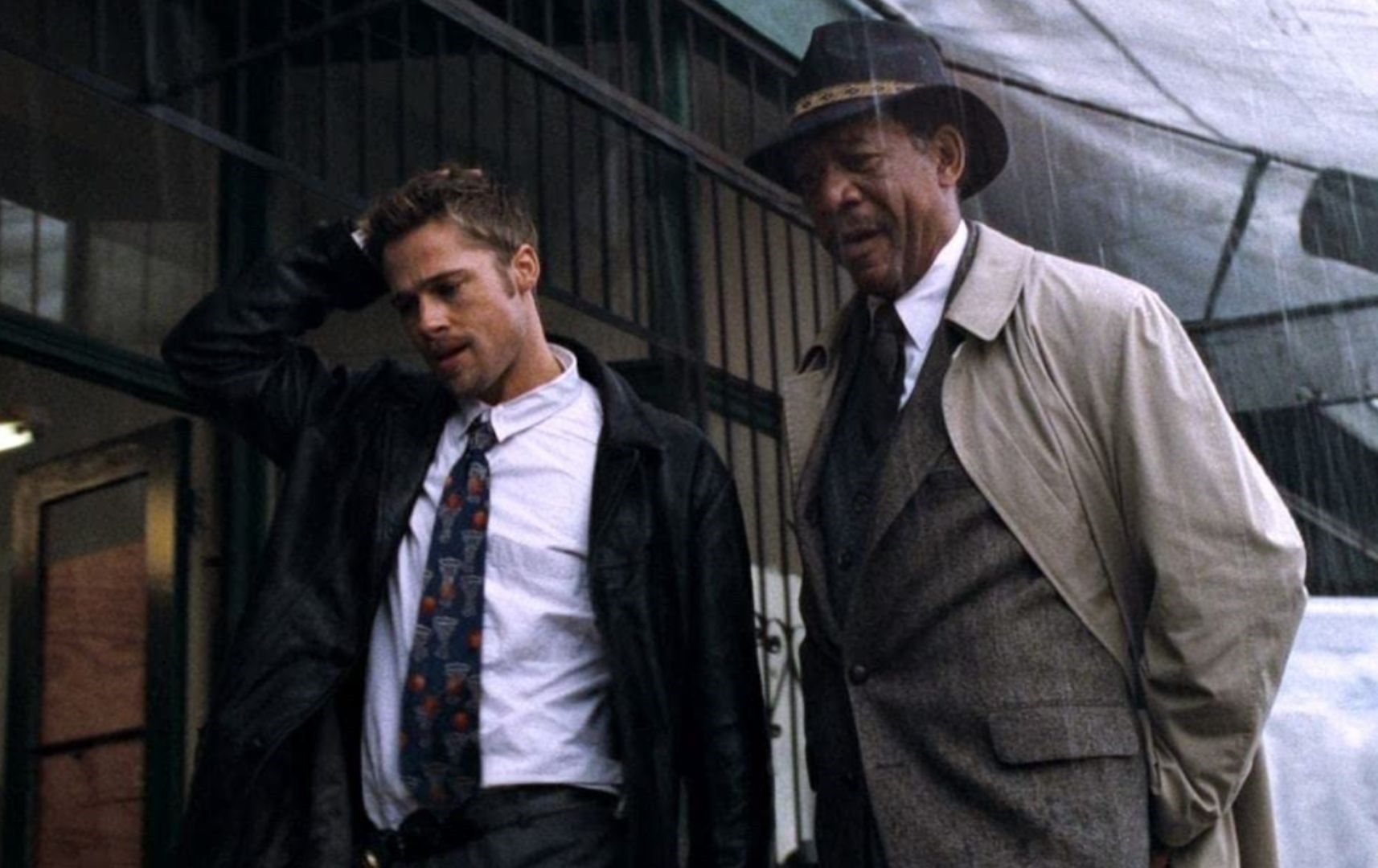
The dynamic between Somerset and Mills is one of the film’s most compelling aspects, offering a nuanced exploration of cynicism versus idealism. Freeman’s and Pitt’s on-screen chemistry is palpable, driving the narrative forward and heightening the emotional impact of the film’s harrowing conclusion.
As the investigation draws closer to the killer, the tension between the detectives’ worldviews escalates, culminating in a climax that is both shocking and thought-provoking.
“Se7en” is renowned for its atmospheric direction and visually striking presentation. Fincher’s use of darkness and rain-soaked cityscapes creates a claustrophobic environment that mirrors the psychological entrapment of its characters. The film’s meticulous attention to detail, from the intricately designed crime scenes to the ominous score by Howard Shore, enhances its immersive quality, making the audience feel as though they are part of the detectives’ descent into the heart of darkness.
Morgan Freeman’s role in “Se7en” goes beyond a mere performance; it is a portrayal of humanity at a crossroads. Somerset represents the weary but steadfast conscience of a society grappling with its depravity. His journey through the film, from detachment to engagement, reflects a broader narrative about the importance of confronting evil, even when victory seems impossible.

In conclusion, “Se7en” is more than just a thriller; it is a profound commentary on sin, redemption, and the human capacity for both good and evil. Morgan Freeman’s performance as Detective Somerset elevates the film, offering a poignant, reflective perspective on the nature of justice and the complexity of the human condition.
“Se7en” remains a seminal work in the genre, its impact undiminished by the passage of time, a testament to the enduring power of storytelling when combined with masterful acting and direction.
4. “Million Dollar Baby”: A Knockout Story of Determination and Redemption
“Million Dollar Baby,” directed by Clint Eastwood and released in 2004, is a potent blend of sports drama and a deeply moving narrative that explores themes of determination, redemption, and the search for meaning.
The film stars Eastwood as Frankie Dunn, a grizzled boxing trainer with a haunted past, Hilary Swank as Maggie Fitzgerald, a determined woman who aspires to become a professional boxer, and Morgan Freeman as Eddie “Scrap-Iron” Dupris, a former boxer who acts as Frankie’s friend and the gym’s caretaker. Freeman’s Oscar-winning performance as Eddie brings depth and warmth to the film, acting as the story’s moral compass and emotional core.
“Million Dollar Baby” transcends the sports movie genre, offering a profound look at the human spirit’s resilience. The film’s strength lies in its ability to weave complex characters and themes into a narrative that is both uplifting and tragic. Maggie’s journey from a waitress in a small town to a determined fighter under Frankie’s reluctant tutelage is a testament to the film’s exploration of the fight for personal dreams against insurmountable odds.
Freeman’s character, Eddie, serves as the narrator of the story, providing insight and reflection on the events that unfold. His portrayal of Eddie is filled with wisdom, regret, and a sense of loyalty and love for both Frankie and Maggie. Freeman’s performance adds a layer of complexity to the film, as his character deals with his past failures and seeks redemption through his support of Maggie’s ambitions. His voiceover throughout the film not only guides the narrative but also imbues it with a philosophical depth, pondering the nature of fate, the importance of fighting for what we believe in, and the capacity for human connection to bring healing.
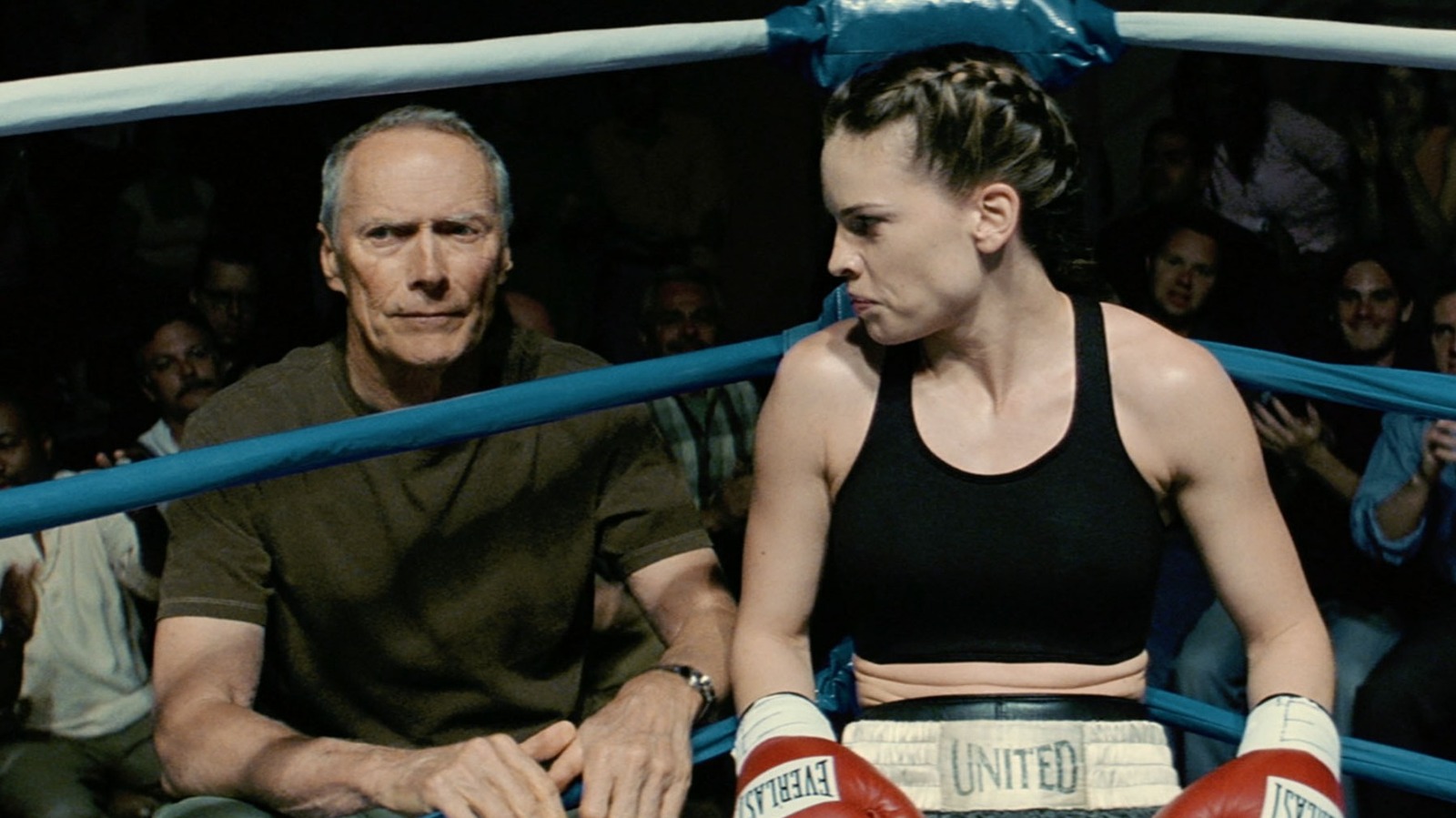
The dynamic between Frankie, Maggie, and Eddie is the heart of “Million Dollar Baby.” As Maggie’s talent and determination become evident, Frankie’s tough exterior begins to crack, revealing a vulnerable man grappling with guilt and regret. Eddie’s presence and counsel become crucial as he bridges the gap between the trainer and his protégé, creating a familial bond that deepens the emotional impact of the story.
Clint Eastwood’s direction is masterful, capturing the gritty reality of the boxing world while also focusing on the intimate human drama at play. The film’s cinematography, with its subdued palette and focused lighting, mirrors the characters’ internal struggles and the stark choices they face. The boxing scenes are realistic and visceral, but it is the moments between these battles that the film finds its true power in the quiet conversations, the shared dreams, and the unspoken understanding between characters.
“Million Dollar Baby” culminates in a series of events that challenge the characters’ dreams, beliefs, and relationships, leading to a deeply emotional and controversial climax. The film’s conclusion is a bold examination of the value of life, the right to choose one’s fate, and the enduring power of love and friendship.

In conclusion, “Million Dollar Baby” is a remarkable film that combines the excitement of the boxing ring with a poignant exploration of human connection, personal ambition, and the search for redemption.
Morgan Freeman’s performance as Eddie “Scrap-Iron” Dupris is a cornerstone of the film, providing emotional depth and wisdom that elevate the story to a timeless exploration of the human condition.
His Oscar win for Best Supporting Actor is a testament to the impact of his role in a film that continues to resonate with audiences as a masterpiece of modern cinema.
5. “Invictus”: Uniting a Nation Through the Power of Sport
Directed by Clint Eastwood and released in 2009, “Invictus” is a compelling narrative that transcends the conventional sports movie genre, delving into the depths of leadership, forgiveness, and the unifying power of sport. The film is based on the true story of Nelson Mandela’s efforts to unite post-apartheid South Africa through their national rugby team’s bid to win the 1995 Rugby World Cup.
Morgan Freeman takes on the role of Nelson Mandela, delivering a performance that is both profound and inspirational, capturing the essence of Mandela’s charisma, wisdom, and visionary leadership. Matt Damon co-stars as François Pienaar, the captain of the South African rugby team, who becomes an integral part of Mandela’s plan.
“Invictus” not only explores the political and social dynamics of South Africa during a pivotal time in its history but also showcases the transformative power of sport as a metaphor for change and reconciliation. The title of the film, Latin for “unconquered,” encapsulates the spirit of Mandela’s leadership and the resilience of the human spirit in the face of adversity.
Freeman’s portrayal of Mandela is a masterclass in acting, capturing the nuances of a world leader known for his dignity, eloquence, and unyielding commitment to unity and forgiveness.
Through his performance, Freeman brings to life Mandela’s strategic use of the Rugby World Cup as a tool for nation-building, emphasizing the importance of common goals and shared victories in healing a divided nation.
The actor’s meticulous attention to Mandela’s mannerisms, accent, and speech patterns adds a layer of authenticity to the portrayal, making it a memorable and impactful part of the film.
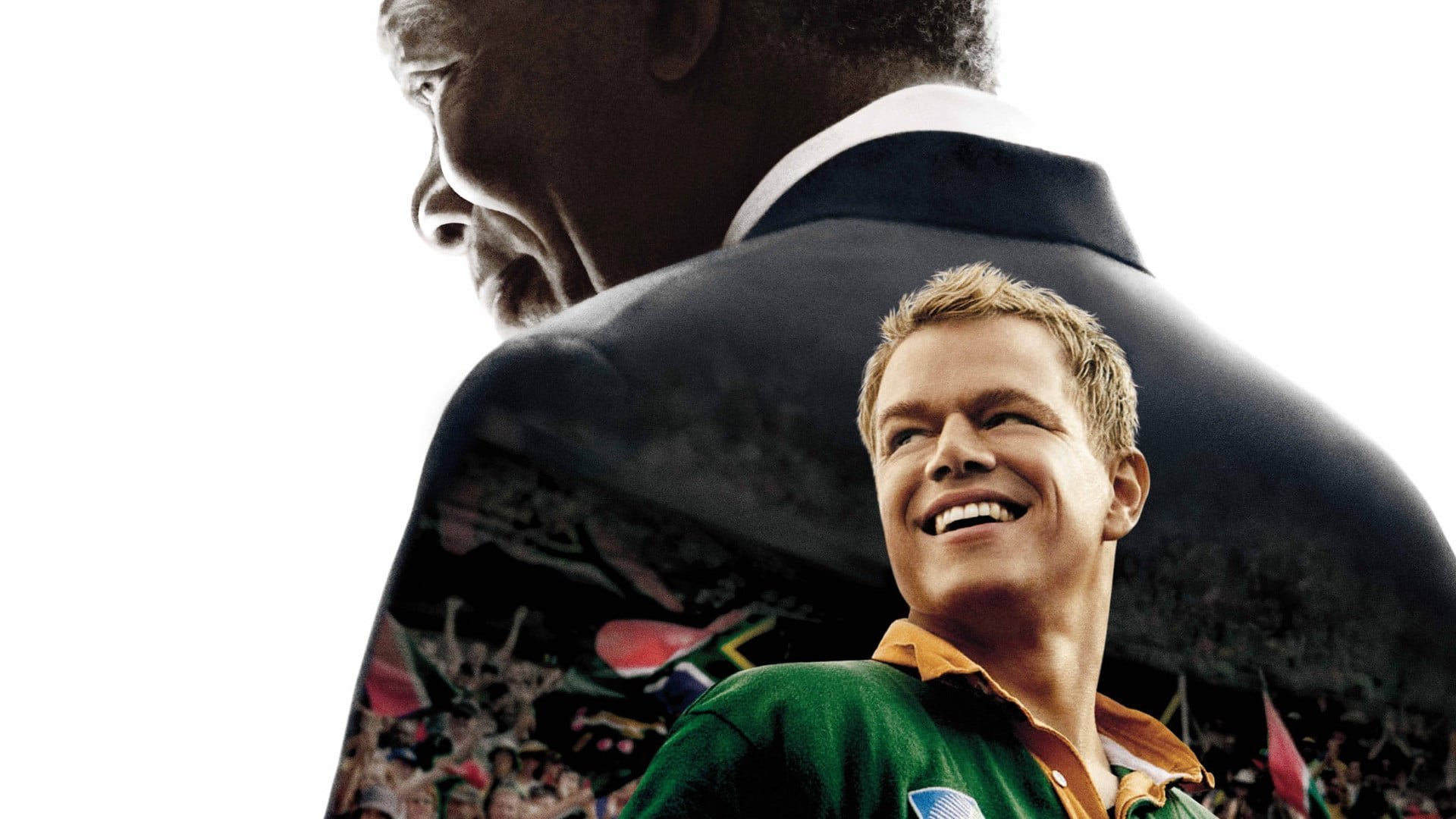
The dynamic between Mandela and Pienaar, as depicted by Freeman and Damon, is central to the narrative, highlighting the themes of leadership, trust, and mutual respect. Their interactions reflect the broader process of reconciliation and understanding that Mandela sought to foster among South Africa’s diverse population.
The film adeptly portrays how Mandela’s vision for a united South Africa influences Pienaar and his teammates, transforming them from a rugby team into symbols of national unity and hope.
Clint Eastwood’s direction is both subtle and powerful, capturing the tension and excitement of the rugby matches while also focusing on the human stories behind the sport. The rugby scenes are shot with intensity and dynamism, effectively conveying the physicality and spirit of the game.
However, it is the moments off the field that truly define “Invictus,” from Mandela’s interactions with his security team to his efforts to engage with all segments of the South African population.
The cinematography and score of “Invictus” complement the film’s themes, with sweeping shots of South Africa highlighting the country’s beauty and diversity, while the music underscores the emotional and inspirational moments of the story. The film not only celebrates Mandela’s legacy but also serves as a reminder of the power of empathy, vision, and leadership in overcoming division and achieving common ground.

In conclusion, “Invictus” is a poignant and inspiring film that captures a pivotal moment in South African history and the remarkable leadership of Nelson Mandela. Morgan Freeman’s portrayal of Mandela is nothing short of iconic, offering a deeply moving depiction of a leader committed to forgiveness, unity, and the belief in a better future for his country. Through its powerful narrative and performances, “Invictus” underscores the potential of sport to bring people together and the enduring impact of visionary leadership on the course of history.
6. “Glory”: A Stirring Tribute to Courage and Brotherhood
Released in 1989 and directed by Edward Zwick, “Glory” is a powerful historical war drama that chronicles the valor and trials of the 54th Massachusetts Infantry Regiment, one of the first formal units of the Union Army during the American Civil War to be made up entirely of African-American soldiers, except for its officers.
Morgan Freeman plays Sergeant Major John Rawlins, a role that showcases his ability to convey deep emotional resonance and moral authority. The film also stars Denzel Washington, Matthew Broderick, and Cary Elwes, creating a potent ensemble cast that brings to life this pivotal moment in American history.
“Glory” stands out not only for its historical significance but also for its poignant exploration of themes such as courage, sacrifice, and the struggle for dignity and equality. The film is a testament to the bravery of the African-American soldiers who fought for their freedom and for the Union, often facing prejudice from both enemies and allies.
Through its unflinching portrayal of the horrors of war and the personal battles of its characters, “Glory” offers a compelling narrative about the fight for justice and recognition.
Freeman’s portrayal of Sergeant Major John Rawlins is integral to the film’s emotional depth. Rawlins emerges as a father figure and moral compass for the men of the 54th Regiment, embodying the dignity, wisdom, and resilience that were crucial to their struggle.
Freeman delivers a powerful performance, capturing the complexities of a man who is fighting not just for his country but for the respect and equality of his people. His interactions with the other characters, including Denzel Washington’s rebellious Private Trip and Matthew Broderick’s inexperienced Colonel Robert Gould Shaw, highlight the bonds of brotherhood and mutual respect forged in the crucible of conflict.
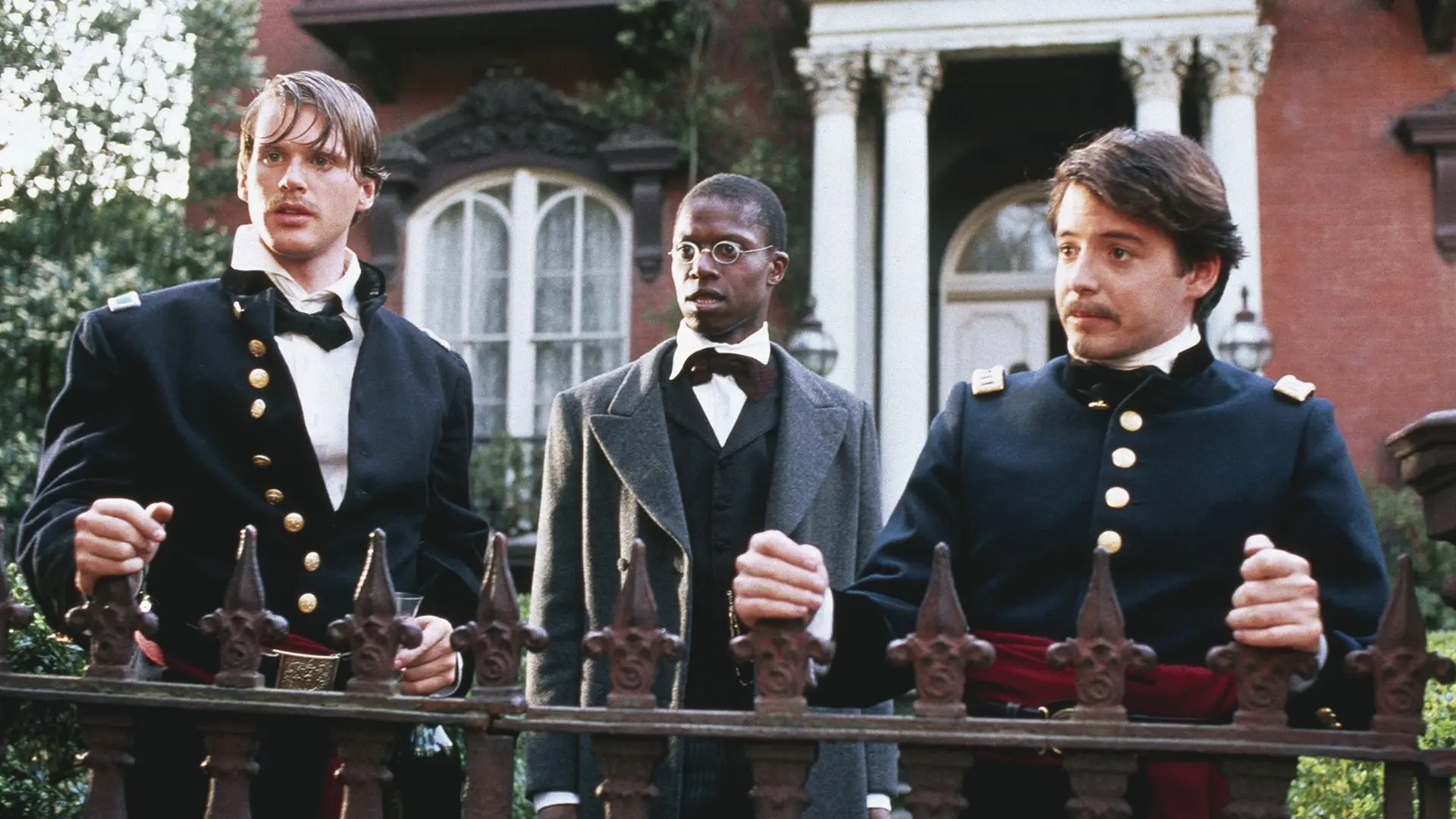
The film’s direction and cinematography are noteworthy, with Zwick successfully balancing epic battle sequences with intimate moments of character development. The use of lighting, costume, and setting authentically recreates the Civil War era, immersing the audience in the historical context. The score, composed by James Horner, further enhances the film’s emotional impact, weaving together themes of hope, sacrifice, and triumph.
“Glory” is celebrated for its historical accuracy and its respectful portrayal of the African-American soldiers who played a crucial role in the Civil War. The film does not shy away from the racial tensions and injustices of the time, instead confronting them head-on and highlighting the courage and dignity of its characters in the face of systemic oppression. This honest and unvarnished portrayal adds to the film’s power and relevance, making it a significant contribution to the canon of American war cinema.
In addition to critical acclaim, “Glory” received multiple accolades, including three Academy Awards. The performances, particularly that of Denzel Washington, who won an Oscar for Best Supporting Actor, are universally praised. However, Freeman’s role as Rawlins stands out for its warmth, humanity, and leadership, qualities that mirror Freeman’s stature as an actor and mentor in the film industry.

In conclusion, “Glory” is a moving and inspirational film that not only recounts an important chapter in American history but also celebrates the human spirit’s capacity for courage, solidarity, and the pursuit of justice. Morgan Freeman’s performance as Sergeant Major John Rawlins is a pivotal element of the film’s success, offering a nuanced and powerful portrayal of leadership in times of adversity. “Glory” remains a stirring tribute to those who fought for freedom and equality, their legacy immortalized through this cinematic masterpiece.
7. “Driving Miss Daisy”: A Journey Beyond Prejudice to Heartfelt Connection
“Driving Miss Daisy,” the 1989 film directed by Bruce Beresford, remains a poignant narrative that explores themes of age, prejudice, and the unlikely friendships that transcend societal boundaries.
Set against the backdrop of the American South from the late 1940s through the 1970s, this cinematic gem tells the story of Daisy Werthan, a wealthy Jewish widow played by Jessica Tandy, and her African-American chauffeur, Hoke Colburn, portrayed by Morgan Freeman.
Through their evolving relationship, the film delicately navigates the complexities of racial tensions, aging, and mutual respect, delivering a timeless message on the human capacity for connection and understanding.
At the heart of “Driving Miss Daisy” is the exceptional performance by Morgan Freeman, reprising his role from the off-Broadway production. Freeman brings a deep, dignified humanity to Hoke, embodying the character with grace, patience, and a subtle humor that disarms not only Daisy but also the audience.
His portrayal is a masterful representation of a man who, despite societal constraints and prejudices, maintains his dignity and gradually forges a bond with his employer that defies the era’s racial divisions.
Jessica Tandy’s Oscar-winning performance as Daisy Werthan offers a nuanced depiction of a woman confronting her prejudices, aging, and the loss of independence. The dynamic between Tandy and Freeman is the film’s cornerstone, evolving from one of employer-employee to a deep, genuine friendship that highlights their shared humanity over their differences. Their interactions provide both humor and heartache, reflecting broader themes of social change and personal growth.
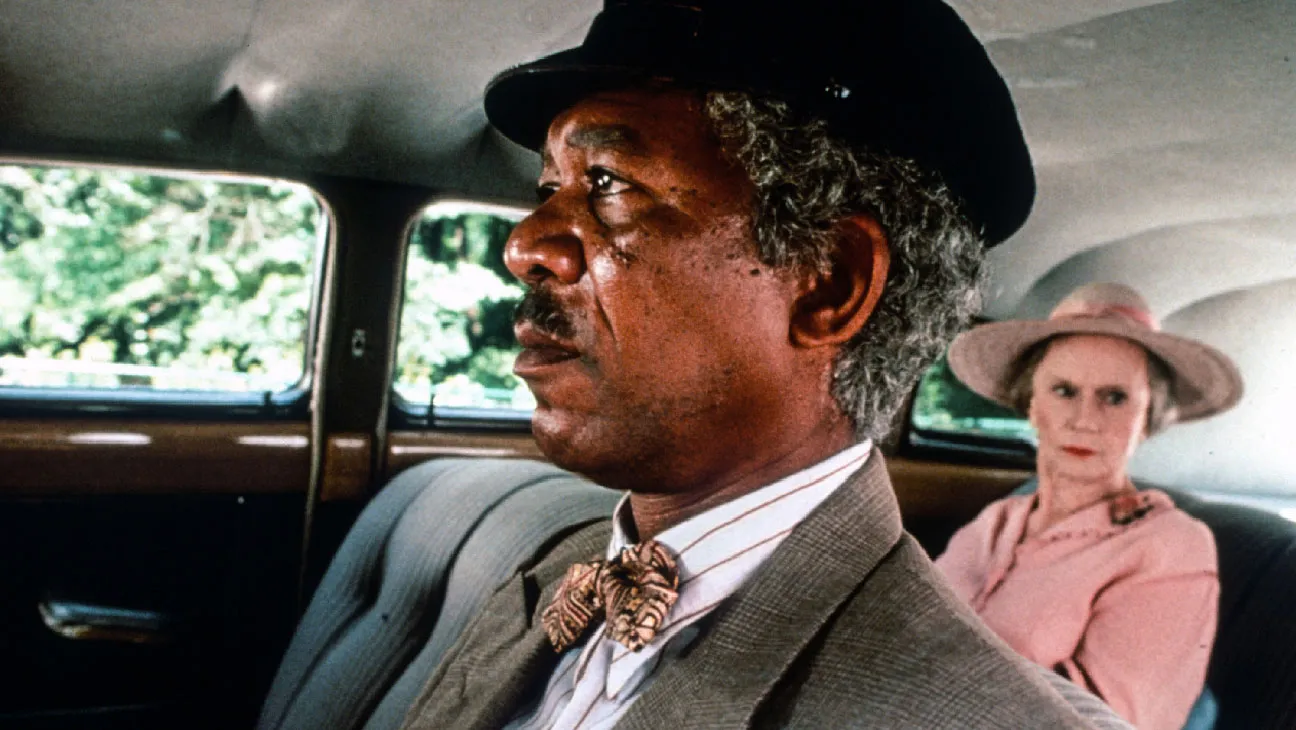
The narrative of “Driving Miss Daisy” unfolds with a gentle pace, mirroring the slow-building relationship between Daisy and Hoke. The film’s strength lies in its subtlety and the understated way it addresses complex issues such as racism, Jewish identity in the South, and the changing times they live in.
Through the personal lens of its characters’ lives, the film captures the broader societal shifts occurring in the United States during the mid-20th century, making it a rich text for understanding the era’s social dynamics.
Bruce Beresford’s direction focuses on character-driven storytelling, allowing the personalities and evolving relationship of Daisy and Hoke to shine. The film’s screenplay, adapted by Alfred Uhry from his own Pulitzer Prize-winning play, retains the play’s intimate feel while effectively utilizing the cinematic medium to expand its setting and thematic resonance.
“Driving Miss Daisy” was celebrated upon its release, winning four Academy Awards, including Best Picture, Best Actress for Jessica Tandy, Best Adapted Screenplay, and Best Makeup. The film’s accolades are a testament to its emotional depth, superb performances, and its gentle yet powerful commentary on race, aging, and friendship.

In conclusion, “Driving Miss Daisy” is a cinematic classic that stands the test of time. Its heartfelt portrayal of an unlikely friendship amidst the backdrop of societal change is both moving and inspiring. Morgan Freeman’s performance as Hoke Colburn is a career highlight, offering a deeply human portrayal that resonates with audiences even decades later. The film serves as a reminder of the transformative power of empathy, understanding, and the simple, profound connections that can emerge in the most unexpected circumstances.
8. “The Dark Knight”: A Cinematic Masterpiece Redefining Superhero Genre
Christopher Nolan’s “The Dark Knight,” released in 2008, is not just a film; it’s a groundbreaking event in the realm of superhero cinema. Its transcendent narrative, complex characters, and philosophical depth elevate it far beyond the conventional confines of its genre, offering a dark, introspective look at the nature of heroism, the duality of man, and the ever-blurring line between order and chaos.
Central to this masterpiece is Morgan Freeman’s portrayal of Lucius Fox, a character that, while not in the thick of Gotham’s nocturnal battles, provides the technological backbone and moral compass for Bruce Wayne’s crusade against crime.
“The Dark Knight” is as much a psychological thriller and a crime drama as it is a superhero film. Its plot weaves an intricate tale of Gotham City under siege by the Joker, a role immortalized by Heath Ledger’s posthumous Oscar-winning performance. Against this backdrop of terror, Batman, portrayed with brooding intensity by Christian Bale, must confront not only the physical threat posed by the Joker but also the ethical quandaries that come with his vigilante justice.
Morgan Freeman’s Lucius Fox stands as a pillar of integrity and ingenuity within Wayne Enterprises and, by extension, Batman’s world. Freeman brings quiet strength and intelligence to the role, embodying a character whose innovation and ethical standards shape the tools and limits of Batman’s warfare against Gotham’s underworld.
Fox’s role in “The Dark Knight” is crucial, not only in providing Batman with advanced technology but also in representing the moral dilemmas inherent in wielding such power. His interactions with Bruce Wayne are marked by a subtle mentorship, guiding the young billionaire through the murky waters of ethical vigilance.
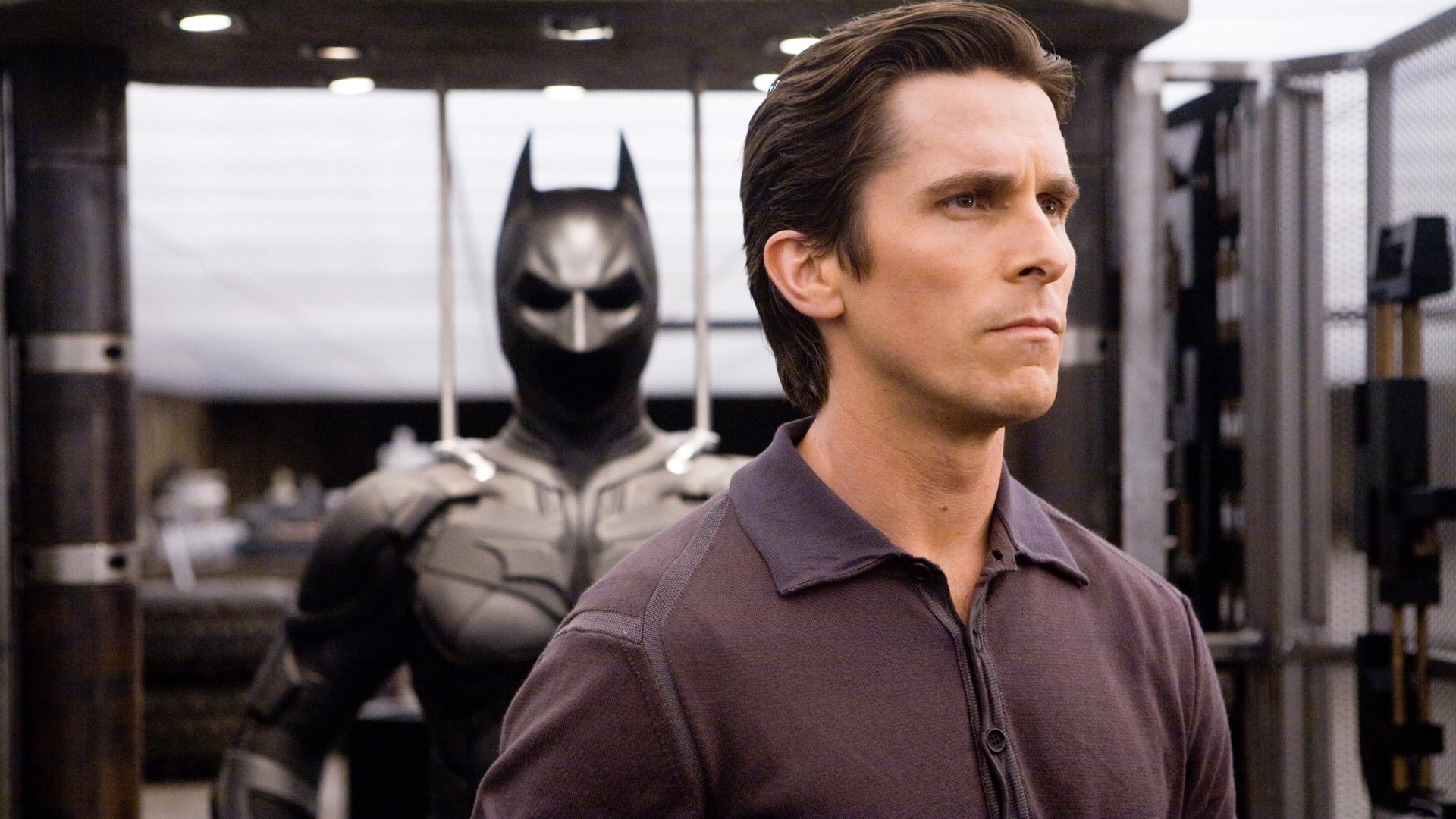
The film’s narrative is driven by its complex characters and their moral conflicts, making “The Dark Knight” a study of the ambiguity of justice and the cost of heroism. Nolan’s direction and the script, co-written with his brother Jonathan Nolan, craft a tense, immersive world where the lines between hero and villain blur.
The Joker’s anarchic philosophy challenges both Gotham’s citizens and its guardians, pushing characters like Harvey Dent/Two-Face, played by Aaron Eckhart, to their breaking points and forcing them to confront their shadows.
Visually, “The Dark Knight” is a marvel, utilizing the sprawling urban landscape of Gotham (Chicago) to create a palpable sense of dread and tension. The cinematography by Wally Pfister and the haunting score by Hans Zimmer and James Newton Howard complement the film’s dark themes, enveloping the audience in a world where hope and despair coexist.
The impact of “The Dark Knight” extends beyond its box office success; it fundamentally changed how superhero films are perceived, paving the way for more nuanced, character-driven narratives within the genre. It challenged filmmakers and audiences alike to demand more from their heroes and villains, to see them as reflections of our complex nature.

In conclusion, “The Dark Knight” stands as a monumental achievement in film, blending action, drama, and moral inquiry into a cohesive, compelling narrative. Morgan Freeman’s Lucius Fox is an indispensable part of this narrative tapestry, providing the technological marvels that empower Batman while reminding him and us of the humanity at the heart of the hero’s journey. The film is not just a story about Batman and the Joker; it’s a reflection on the choices that define us, the shadows we battle within, and the light we strive to be in the darkness.
9. “Bruce Almighty”: Divine Comedy Meets Human Vulnerability
In 2003, “Bruce Almighty” emerged as a cinematic blend of humor, heart, and a touch of the divine, offering audiences a unique take on the age-old question: What would you do if you had the power of God?
Directed by Tom Shadyac, the film stars Jim Carrey as Bruce Nolan, a down-on-his-luck television reporter who, after voicing his dissatisfaction with God’s handling of the universe, is bestowed with divine powers to see if he can do a better job. Enter Morgan Freeman, who delivers a memorable and charismatic performance as God, embodying the role with a blend of wisdom, humor, and an ineffable charm that only Freeman can bring.
“Bruce Almighty” is set against the backdrop of Buffalo, New York, where Bruce Nolan’s life is falling apart. Despite his aspirations and efforts, Bruce feels overlooked and underappreciated, both in his career and by the Almighty Himself. His frustration culminates in a comedic yet poignant tirade against God, leading to the film’s central premise: Bruce being endowed with God’s powers while the real deity takes a brief vacation.
Freeman’s portrayal of God is central to the film’s charm and philosophical inquiries. Rather than opting for the stereotypical portrayal of God, Freeman infuses the character with a modern, approachable, and sagely presence, offering Bruce—and, by extension, the audience—a unique perspective on life’s challenges and the nature of happiness. Freeman’s God is not one to smite or judge harshly; instead, he guides and observes, allowing Bruce to learn the hard truths about power, responsibility, and the intrinsic value of free will.
The film explores the comedic potential of omnipotence through a series of humorous and sometimes heartfelt episodes as Bruce revels in his newfound abilities. However, the narrative delves deeper than mere slapstick comedy, touching on themes of love, humility, and the human propensity to take life’s blessings for granted. Bruce’s journey is a reflection of the human condition, highlighting the importance of gratitude, empathy, and understanding in the face of life’s imperfections.
“Bruce Almighty” was a box office success, resonating with audiences for its clever blend of comedy and life lessons. The film’s humor is grounded in Carrey’s signature physical comedy and expressive performance, but it is Freeman’s calm and collected God that provides the moral and philosophical backbone of the story. The dynamic between Carrey and Freeman is one of the film’s highlights, showcasing a brilliant contrast between Bruce’s manic energy and God’s serene omniscience.
The cinematography and visual effects in “Bruce Almighty” serve to enhance the film’s magical realism, creatively depicting Bruce’s divine antics in a manner that is both believable and fantastical. From parting a bowl of tomato soup à la the Red Sea to typing at superhuman speeds, the film cleverly visualizes the notion of having unlimited power while also pointing to the inherent limitations of such power without wisdom and compassion.

In conclusion, “Bruce Almighty” stands out as a film that successfully marries comedy with deeper existential questions, making audiences laugh while also prompting them to reflect on their own lives and choices. Morgan Freeman’s portrayal of God adds a layer of depth and dignity to the film, grounding its fantastical elements in a sense of warmth and wisdom. Through its engaging narrative and performances, “Bruce Almighty” delivers a timeless message about the human spirit’s resilience and the true source of happiness, proving that sometimes, the power to change one’s life comes not from divine intervention but from within.
10. “Lean on Me”: A Riveting Tale of Determination and Transformation
Released in 1989, “Lean on Me” stands as a compelling testament to the power of leadership, perseverance, and the transformative impact of education. Directed by John G. Avildsen, the film is based on the true story of Joe Clark, an uncompromising and controversial high school principal in Paterson, New Jersey, who becomes a beacon of change for a failing school and its disillusioned students.
Morgan Freeman steps into the shoes of Joe Clark, delivering one of his most memorable and powerful performances that captures the essence of a man driven by an unwavering belief in the potential of his students.
“Lean on Me” delves into the gritty reality of Eastside High School, where low test scores, drug abuse, and violence have become rampant, threatening the future of the students and the integrity of the education system. Enter Joe Clark, a former teacher with a radical approach to discipline and a fierce dedication to improving the school’s environment and academic standards.
Freeman’s portrayal of Clark is both nuanced and dynamic, embodying the complex character of a man who is at once authoritarian and deeply caring, employing unconventional methods to instill discipline, respect, and a sense of pride in his students.
The film’s narrative is as much about Clark’s journey as it is about the collective struggle of the students and faculty to overcome the odds stacked against them. “Lean on Me” explores the themes of redemption, the importance of community support, and the belief that every child deserves a chance to succeed.
Through Clark’s tough-love approach and motivational tactics, we witness a remarkable turnaround in the students’ attitudes and performances, illustrating the profound impact a dedicated educator can have on the lives of young people.
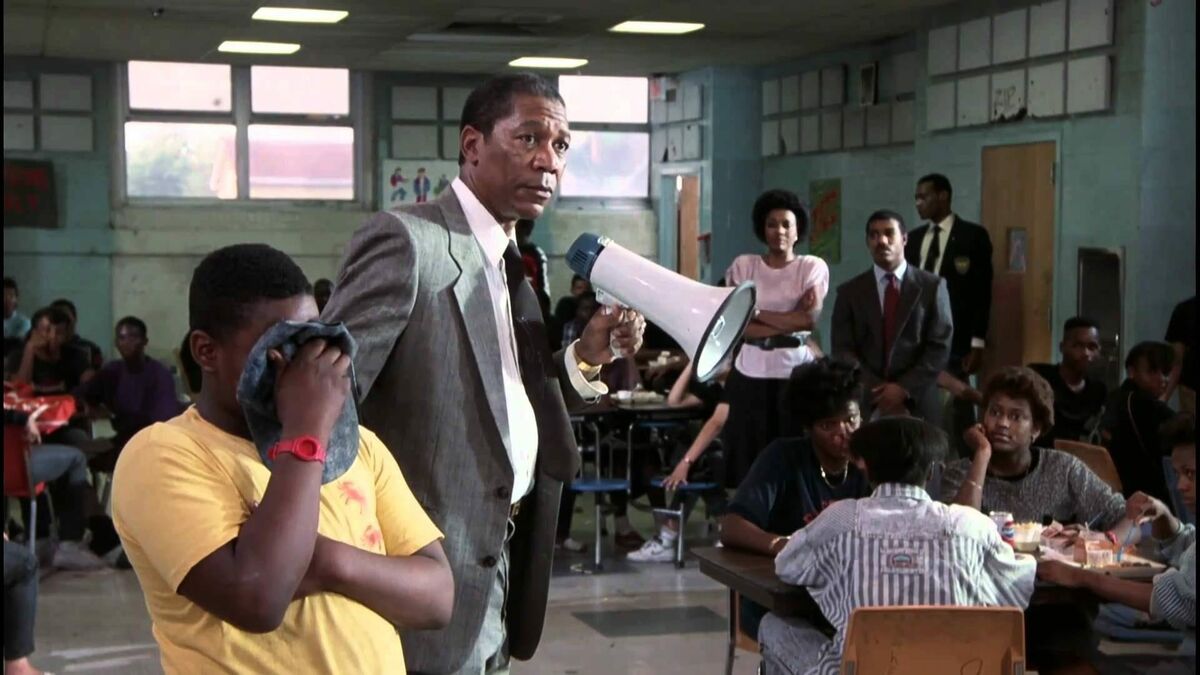
Morgan Freeman’s performance is pivotal to the film’s emotional depth and authenticity. He masterfully conveys the intensity of Clark’s passion for education and his confrontational yet compassionate nature. Freeman’s ability to balance the character’s stern demeanor with moments of vulnerability and genuine care for his students adds a layer of complexity to Clark, making him a relatable and inspirational figure.
The direction by John G. Avildsen is effective in capturing the tension and stakes involved in Clark’s mission to reform Eastside High. The film’s pacing and Avildsen’s attention to character development ensure that “Lean on Me” is not just a story about educational reform but a human story about resilience, hope, and the impact of strong leadership in the face of adversity.
“Lean on Me” also benefits from a memorable soundtrack, including its title song, which underscores the film’s themes of support and unity. The music complements the narrative, enhancing the emotional resonance of key moments and the overall message of empowerment and change.

In conclusion, “Lean on Me” is a powerful and inspiring film that showcases Morgan Freeman’s exceptional talent in bringing to life the story of Joe Clark, a man whose controversial methods and unwavering commitment to his students left an indelible mark on Eastside High School.
The film serves as a reminder of the challenges and rewards of education, the importance of strong leadership, and the difference one person can make in the lives of many. Freeman’s portrayal of Clark is a highlight of his illustrious career, offering audiences a character who is as complex as he is captivating, making “Lean on Me” a must-watch for those who believe in the power of change and the value of education.
In conclusion,
Morgan Freeman’s illustrious career in cinema has not only provided audiences with decades of compelling performances but has also left an indelible mark on the film industry and beyond. His exceptional talent, characterized by a profound depth and a dignified presence, has made him one of the most revered actors of our time.
Freeman’s ability to imbue each role with a unique blend of humanity and wisdom has earned him a special place in the hearts of moviegoers around the world. Beyond his cinematic achievements, Freeman’s commitment to using his voice and platform for the greater good reflects the depth of his character off-screen as well.
Through his advocacy and philanthropy, he has demonstrated a steadfast dedication to uplifting communities and addressing global issues, further cementing his legacy as not just an actor but a humanitarian.
As we reflect on Morgan Freeman’s career, it is clear that his contributions to entertainment and society will be celebrated for generations to come. His legacy transcends his filmography, embodying the essence of what it means to be a true icon in every sense of the word.
Freeman’s journey reminds us of the power of art to inspire, challenge, and bring about change, making him a timeless figure in the cultural landscape.


